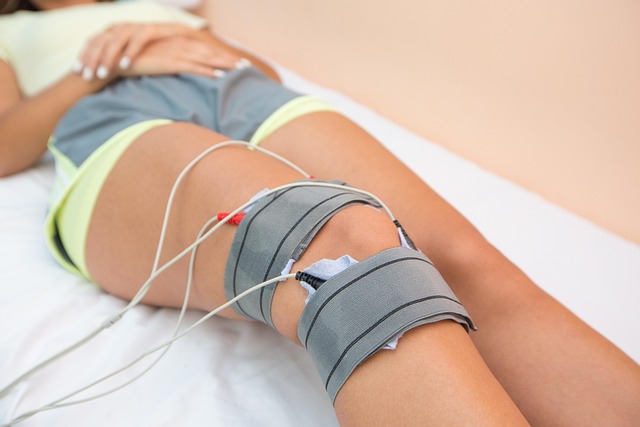Early sobriety presents unique challenges, but effective stress management is key. By combining practical tools like trigger recognition, healthy coping mechanisms, holistic wellness practices (e.g., yoga, meditation), and group support, individuals can navigate this phase successfully. Stress management workshops equip participants with emotional regulation skills, personalized coping strategies, and mindfulness techniques to build resilience against stressors. Online recovery groups offer continuous motivation, while coaching focuses on healthy relationships and social network building to prevent relapse. These comprehensive approaches empower those in early sobriety to maintain balance, foster a supportive community, and achieve long-term success.
Stress management workshops play a crucial role in supporting individuals during the early stages of sobriety. By teaching effective coping skills, relaxation techniques, and emotional regulation strategies, these workshops empower people to navigate challenges and maintain their commitment. In this article, we explore understanding stress and its impact on early sobriety, the motivational benefits of workshops, and practical techniques for long-term coping—essential ways to stay motivated and achieve lasting recovery.
- Understanding Stress and Its Impact on Early Sobriety
- The Role of Workshops in Motivating and Empowering Individuals
- Practical Techniques and Strategies for Long-Term Coping
Understanding Stress and Its Impact on Early Sobriety

Stress is a common challenge during early sobriety, as individuals navigate a new lifestyle free from substances that previously numbed or mitigated their emotions. This transition period can be emotionally turbulent, leading to heightened anxiety and vulnerability. Understanding stress on a deeper level becomes crucial for those in recovery; recognizing triggers, identifying healthy coping mechanisms, and adopting effective stress management strategies are vital steps toward maintaining motivation and achieving long-term sobriety.
In the initial stages of recovery, when emotions are raw and intense, it’s essential to prioritize holistic wellness programs that integrate various aspects of well-being. Prioritizing nutrition, regular exercise, and stress management techniques like mindfulness can foster a sense of control and empowerment. Group counseling sessions also play a significant role in building a supportive community among peers in recovery, offering empathy, accountability, and encouragement. These collective efforts contribute to an individual’s ability to stay motivated, cope effectively, and maintain emotional balance during the transformative journey of early sobriety.
The Role of Workshops in Motivating and Empowering Individuals

Stress management workshops play a pivotal role in empowering individuals to take charge of their mental well-being, especially those in the early stages of sobriety. These interactive sessions offer practical tools and techniques that provide much-needed support during what can be a challenging period. By learning effective coping skills, participants gain a sense of agency, enabling them to navigate stress triggers with greater resilience. The structured environment facilitates open discussions about emotional regulation, fostering a deeper understanding of one’s feelings and behaviors.
Workshops often incorporate holistic wellness practices such as yoga, meditation, and nutrition education, creating a comprehensive approach to recovery. These activities not only promote relaxation but also teach individuals how to manage stress in everyday life. For instance, regular Yoga and Meditation Classes for Stress Reduction can help clear the mind, enhance focus, and cultivate a sense of inner peace, all essential components in staying motivated during sobriety. Additionally, online platforms offering Recovery Support Groups provide accessible resources, ensuring individuals have continuous access to like-minded communities, even beyond traditional workshop settings.
Practical Techniques and Strategies for Long-Term Coping

Staying motivated in early sobriety is a significant challenge, but it’s achievable with the right tools and support. Stress management workshops offer practical techniques and strategies that go beyond mere relaxation. Participants learn to identify triggers, develop personalized coping mechanisms, and cultivate emotional resilience. Incorporating activities like Yoga and Meditation Classes for Stress Reduction can significantly enhance these skills, promoting mindfulness and inner calm. Additionally, Healthy Relationships Coaching in Early Sobriety plays a crucial role in navigating social interactions and building a supportive network, which is vital for maintaining motivation and preventing relapse.
Stress Management Workshops for Addiction Recovery provide a safe space to explore emotional regulation strategies. Techniques such as deep breathing exercises, progressive muscle relaxation, and cognitive reframing help individuals manage stress effectively. By integrating these practices into daily routines, participants gain tools to stay focused, maintain perspective, and cultivate a sense of well-being. This holistic approach ensures that the skills learned extend far beyond the workshop setting, fostering long-term coping abilities for sustained sobriety.
Stress management workshops play a pivotal role in empowering individuals with effective coping skills, relaxation techniques, and emotional regulation strategies during early sobriety. By understanding the impact of stress and learning practical tools, folks can navigate challenges with resilience, enhancing their journey towards sustained recovery. These workshops offer a supportive environment to foster self-care and provide valuable resources for long-term mental wellness, thus improving overall ways to stay motivated in early sobriety.






